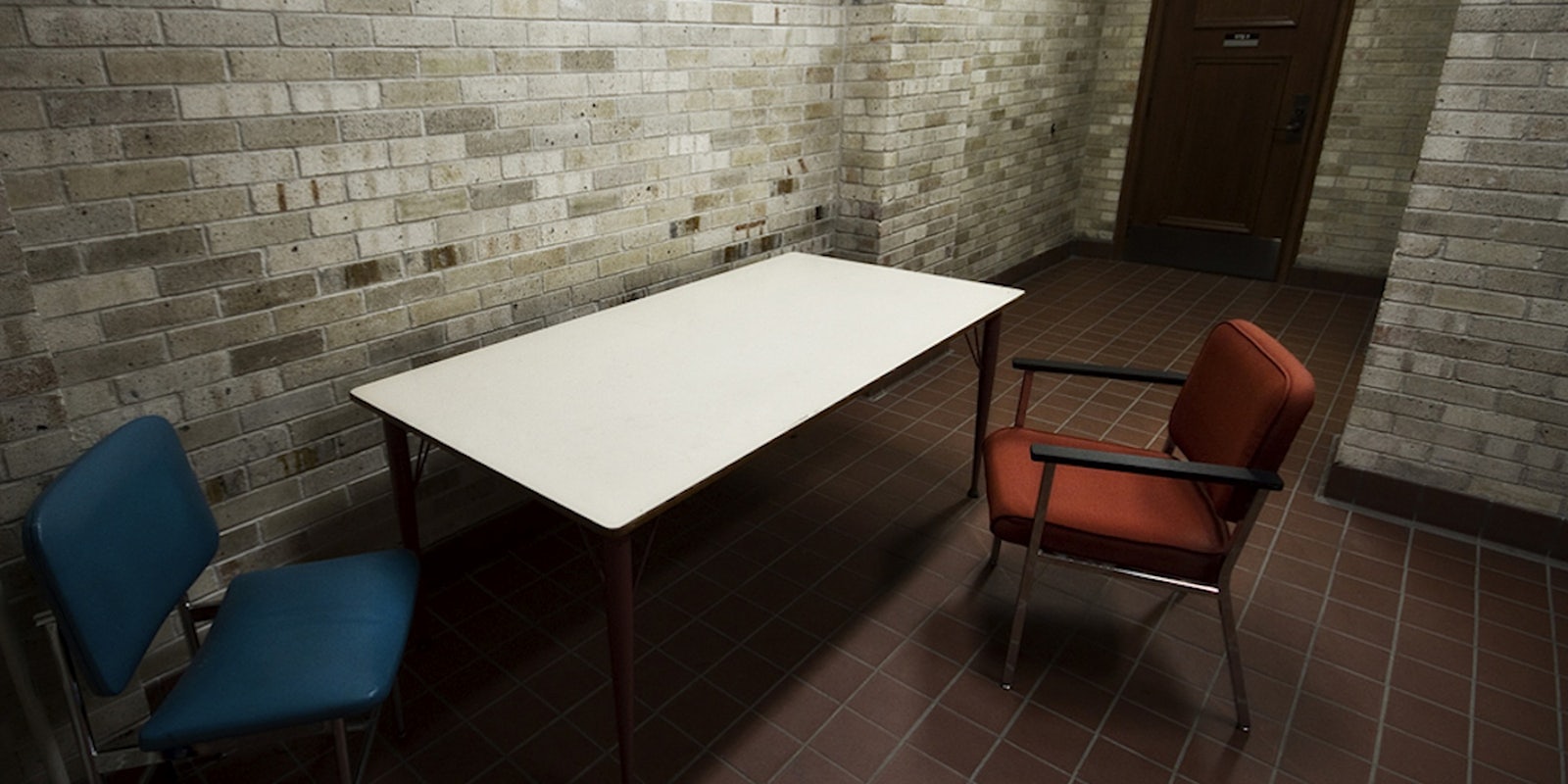The New York Police Department (NYPD) is facing questions about its interrogations of at least ten protesters arrested at a rally following the death of Eric Garner.
Two women detained at the protests, a doctoral student and a social worker, say police officers told them that they would not be released until after they were questioned. Leighann Starkey, 28, told the New York Times that police asked about her political affiliations, how she knew about the protest, and what social media was involved. Inexplicably, the detectives also inquired about whether she had any ties to terrorists.
Christina Wilkerson, 30, told the Times that detectives asked her where she worked and whether her colleagues had attended the demonstrations. They also wanted to know, she said, who had organized them.
“It was like they were trying to find out where their problem was coming from so they could stifle it.”
The allegations have raised concerns about whether the NYPD is investigating anti-police-brutality demonstrators’ political views instead of actual criminal activity.
The NYPD, which has historically maintained dossiers on political activists, is prohibited under a 1985 consent decree from investigating groups’ political and religious affiliations unless the group in question is linked to a specific crime.
The Times explains:
The issue is of particular interest in New York City, where the 1985 settlement of a federal court case, Handschu v. Special Services Division, resulted in a consent decree that defined how the city’s police may investigate political activity.
In 2003, the judge overseeing the Handschu settlement rebuked the Police Department when it emerged that Intelligence Division detectives had been using a document called the Demonstration Debriefing Form to record where arrested antiwar protesters went to school, their membership in organizations and their involvement in past protests. Police officials maintained that the questioning had been lawful but said that the department had stopped using the form and had destroyed a database derived from it.
Lawrence Byrne, the NYPD’s deputy commissioner for legal matters, told the Times that the questioning was permitted under the consent decree, and that the questions began after a protester splattered fake blood on NYPD Commissioner William Bratton in November. Byrne further claimed that the department began seeing threats against officers on social media.
“The Detective Bureau began a process of interviewing defendants arrested during the protests,” Byrne told the Times, “in an attempt to obtain information about the specific acts of violence, vandalism and threats directed at police officers, as well as the general threat environment relating to such acts.”
One seminary student said that detectives wanted to know how to receive email messages from a listserv used by students to discuss police-brutality protests. Another said police wanted to know if his fellow classmates were attending the demonstrations.
Sherlly Pierre, an elementary school teacher, said police asked her if she had helped organize any protests, as well as when and where the next demonstration would occur.
“What we were being asked had nothing to with what we were being charged with,” Pierre told the Times. “It was like they were trying to find out where their problem was coming from so they could stifle it.”
Photo by Krystian Olszanski/Flickr (CC BY 2.0)


